
Eating to Ease Anxiety
We can help regulate our mood with diet, as there is a connection between what we eat and how we feel. Here are some tips for pandemic eating that will help boost your mood and ease anxiety!
|
Shopping at Amazon?
Support CWA without spending anything extra by using AmazonSmile!
|
Did someone share this with you? Sign up here to get the CWA Flash directly!
|
|
|
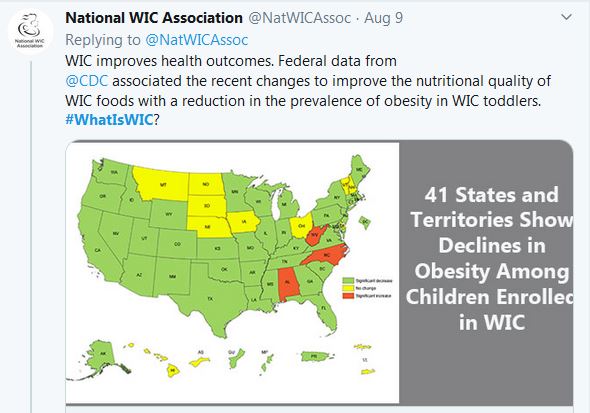
ACTION: Let Policymakers Know #WhatIsWIC
Over the weekend, the New York Times reportedthat Treasury Secretary Steven Mnuchin - a key Administration negotiator in the ongoing COVID-19 relief talks - had "inquired what WIC was." In response, NWA issued this statement and answered Secretary Mnuchin's question in a Twitter thread. Join NWA in lifting up WIC stories on social media. Use the hashtag #WhatIsWIC to tell the COVID relief negotiators how you contribute to positive nutrition and health outcomes each and every day!
|

Lawmakers Collaborate on Bipartisan Effort to Improve WIC Shopping
Congressman Andy Levin (D-MI) and Congresswoman Elise Stefanik (R-NY) introduced the COVID-19 WIC Safety and Modernization Act last week, which would convene a task force to make recommendations to streamline the WIC shopping experience by September 2021. The task force would include USDA and key stakeholders such as state and local WIC agencies, vendors, and WIC participants, charged with exploring innovations to the WIC shopping experience, including online purchasing, home delivery, and self-checkout. This bill follows USDA's recent announcement of a three-year, $2.5 million cooperative grant agreement to pilot online ordering and purchasing.
|

House Recalled From Aug. Recess for USPS Emergency Vote
Speaker Nancy Pelosi is calling the House back from their August recess for an emergency session regarding President Donald Trump's attempts to undermine the U.S. Postal Service. The House is expected to vote as early as this Sat., Aug. 22, on a proposal to block the Trump administration's plan for overhauling the Postal Service. Alarm is spreading regarding Trump's plan to cut services at USPS ahead of the Nov. 3 election, and in fact USPS has warned of delays that may lead to votes not being counted. Democrats allege Trump's appointee to lead the Postal Service, Louis DeJoy, has overseen substantial operational changes to the agency that has led to backlogs and service interruptions - an immense concern as millions of Americans prepare to receive and return their ballots through the mail during the COVID-19 pandemic. President Trump has long alleged, without evidence, that mail-in voting perpetuates election fraud, though he himself votes by mail. Today, following the announcement of a large multi-state coalition announcing they would file federal suit over operations changes impact on fair elections, USPS Postmaster General Louis DeJoy said in a statement: "To avoid even the appearance of any impact on election mail, I am suspending these initiatives until after the election is concluded."
|

Public Charge Rule Updates
On July 29, a federal court in New York granted a preliminary injunction against the public charge rule, ordering the U.S. Department of Homeland Security to halt enforcement of the new rule due to the COVID-19 pandemic nationwide. Then, last week, the injunction was lifted by the federal appeals court, except in New York, Connecticut, and Vermont. The final public charge rule - which went into effect in February 2020, just before the pandemic - threatens the legal status of immigrants if they access certain federal benefits, including Medicaid, SNAP, and housing subsidies. The final public charge rule explicitly excludes WIC from consideration in public charge determinations, and also made exceptions for pregnant women and children who accessed Medicaid. Despite a USCIS statement that healthcare services accessed due to the COVID-19 pandemic would not be considered under the public charge rule, the New York federal judge in the case noted that "What were previously theoretical harms have proven to be true. We no longer need to imagine the worst-case scenario; we are experiencing its dramatic effects in real time," referring to the chilling effect of the public charge rule.
|
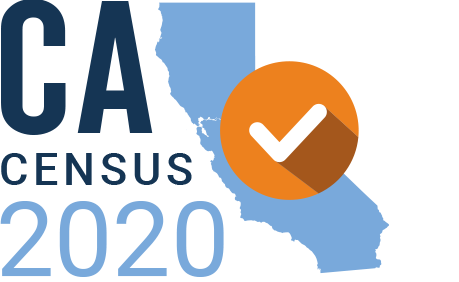
Census Completion: Hard Push Needed
Census completion has been fraught with challenges this year, due not only to the pandemic, but also to attempts to exclude undocumented immigrants from completing the census. Due to the pandemic, completion dates were extended to Oct. 31, but then suddenly recently reset to Sept. 30. The extra time was important to reach individuals in their homes, now more challenging to reach, and assist those who needed more support. In other challenges, the White House in July announced that undocumented immigrants would not be counted in the data that defines how Congressional seats are determined, widely understood to be illegal. Nearly 40% of the US is still uncounted, with CA's Census completion rate being, 65.5%. Local CA WIC staff have been steadfast in encouraging and providing instructions for individuals to complete the census. If you need to refresh your census messages, check the CWA Census page for some ideas.
|
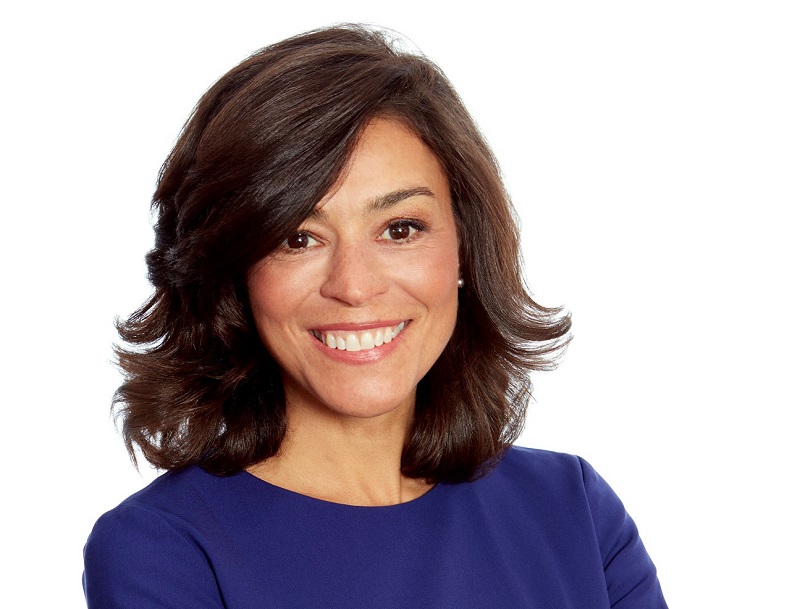
Dr. Angell, Director of CDPH, Resigns
Earlier in August, CA state officials said that a technical issue with the disease data-tracking system threw into question the data that Gov. Gavin Newsom had at first said was an encouraging downward trend in COVID-19 cases. The glitch caused almost 300,000 records to disappear from the system, although it was unclear how many of those were coronavirus cases and how, precisely, it affected the counts. At the beginning of last week, Dr. Sonia Angell, California's public health director, abruptly resigned. In her resignation letter, Dr. Angell - who, early in the pandemic, spoke about the state's efforts to identify disparities in the pandemic's toll on Latino and Black communities in particular - did not say why she was stepping down, effective immediately. Sandra Shewry, a veteran public health official, is the new acting director of the department, while Dr. Erica Pan is the acting state public health officer.
|
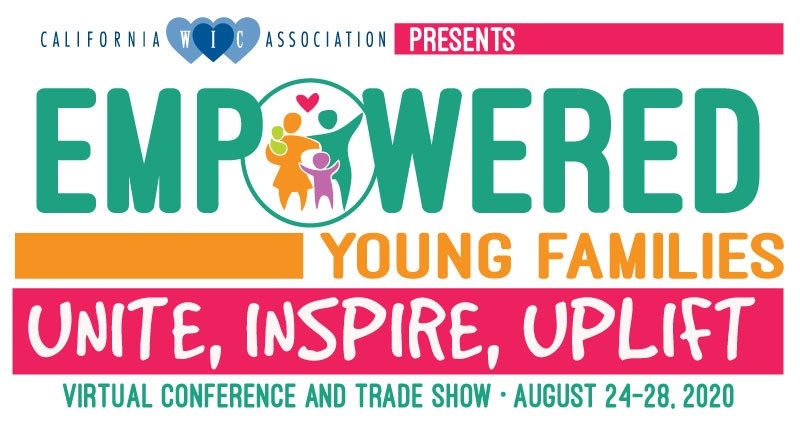
Empowered Young Families Unite, Inspire, Uplift!
We are ready to greet everyone, next week for Empowered Young Families, Unite, Inspire, UpliftCWA's 28th annual conference and trade show. The theme of the week is right on target as we look to the future of WIC innovations and engagement, face down threats to immigrants and low-income families, stand up to COVID and address racism, especially for Black individuals. Many thanks to the conference planners, exhibitors and speakers for being part of CWA's first virtual conference. We are all learning together, so be sure to check the FAQs for tech tips to avoid those maddening problems. Wear comfy clothes for your daily wellness activities!
|

WIC Agencies Honor World Breastfeeding Month
WIC agencies have, as usual, been very creative in promoting World Breastfeeding Month, even in a pandemic. Here are a few examples, including opportunities to participate. WIC agencies are using Instagram to reach parents. Contra Costa just started their Instagram and West Oakland Health Center WIC sponsors popular breastfriends_oakland.
|
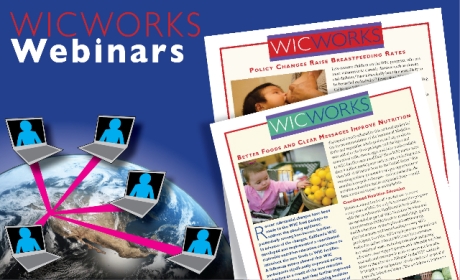
Fruit & Veggie Access and Infant Feeding Webinars Posted
You can find these recent webinars in our library for easy reach. Find out about partnerships to incentivize and improve fruit and vegetable access in retail, farmers' markets, health care and for pregnant WIC participants. Produce in a health center?? DoorDash and WIC??!! How much money was the incentive?? Wondering about how to let babies begin to feed themselves or using Baby Behaviors to better respond to feeding? Check out the webinar library.
|
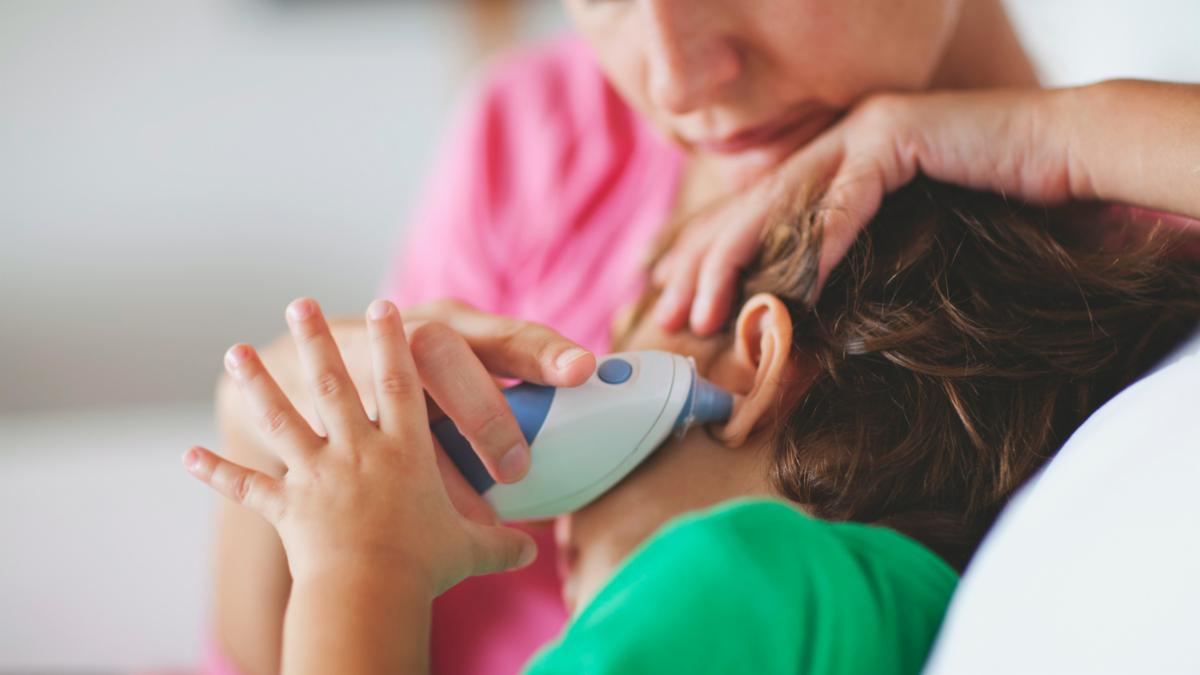 New Reports Indicate Worsening Impacts for Children Affected by COVID-19
Two new reports continue to add to the research indicating increasing rates of infection and severe symptoms among children diagnosed with COVID-19. Last Monday, the American Academy of Pediatrics and the Children's Hospital Association found that nearly 100,000 children tested positive for COVID-19 in the last two weeks of July. On Friday, the Centers for Disease Control and Prevention (CDC) issued an analysis indicating that the rate of hospitalization for children infected with COVID-19 was similar to the adult rate, with almost 1 in 5 of the hospitalizations being infants younger than three months. This data stands contrary to the contention that children are almost immune from the effects of COVID-19, a view espoused by the White House without any scientific backing.
|
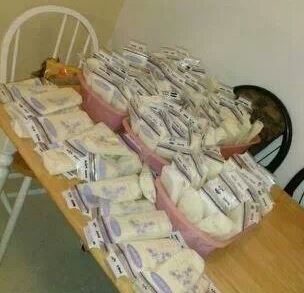 Pasteurization Inactivates COVID-19 Virus in Donor Milk
Researchers have found that in human milk, pasteurization inactivates the virus that causes COVID-19, confirming milk bank processes have been safe throughout the pandemic, and will remain safe going forward, too. There are 23 human milk banks in the United States; donors are screened for diseases, and milk is tested and pasteurized to ensure that it is safe for medically fragile babies. Researchers point out that there is no evidence that the virus is passed through breast milk, but that pasteurization eliminates any theoretical risk. For this study, the team worked in the Kirby Institute's PC3 lab to experimentally infect small amounts of frozen and freshly expressed breast milk from healthy Lifeblood Milk donors, and then pasteurized the samples using the process used by milk banks to determine that after the process, the samples did not contain any live virus.
|
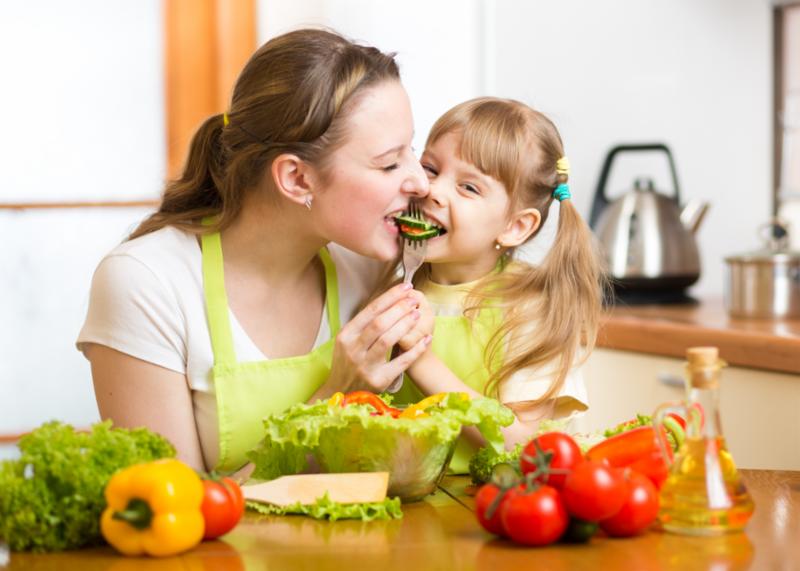 Kids Can Pester Parents Into Better Habits
Children's behavior can influence food consumption at home, says a new study in the Journal of Nutrition Education and Behavior. Researchers from the University of Arkansas for Medical Sciences and Louisiana Tech University studied classrooms that delivered weekly Together, We Inspire Healthy Eating (WISE) lessons at seven Head Start sites across two states in the southern United States. The study demonstrated that children's "pester power" explained a significant portion of the variance in the residual change of children's dietary intake and parenting practices after one school year of exposure to the WISE intervention. The more pester power that parents were exposed to from their children, the greater the changes for intake of fruits and vegetables and also supportive parenting practices.
|
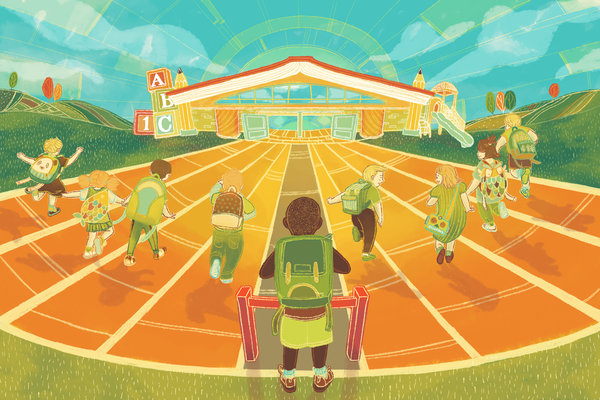 Universal Preschool Would Drastically Reduce Racial Early Learning Inequities
Universal preschool would help close the math and reading gaps between white and Black children who are approaching kindergarten, an analysis from the National Institute for Early Education Research shows. Schools with high quality learning programs have resources to ensure a child is on track in age-appropriate learning activities. These programs have systemically left Black children behind due to high tuition and waiting lists. Black children are on average nearly nine months behind in math and almost seven months behind in reading compared to their white non-Hispanic peers, the report notes. Universal pre-K would practically eliminate the reading skills gap for kindergarten and cut the math skills gap almost in half - from about nine months to five months. Currently, only Florida, Vermont and Washington, D.C., offer full universal pre-K, according to the Education Commission of the States.
|
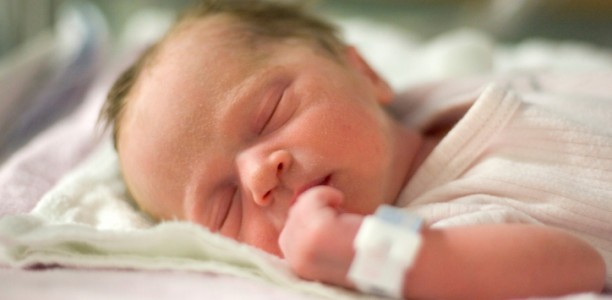 Risks of Separating Mothers and Babies Greater Than Risks of COVID
New research published in the Journal of Human Lactation examines various studies, and finds that neonatal COVID-19 is uncommon, almost never symptomatic, and that the rates of infection are no greater if the baby is breastfed or allowed contact with the mother. In contrast, research clearly demonstrates there are significant, ongoing health and psychological implications if infants are separated from their mothers. The World Health Organization (WHO) currently recommends that, when a mother is suspected or confirmed as having COVID-19, infants should still be placed skin-to-skin after birth. It is also recommended that infants remain in close proximity to their mother, and for breastfeeding to be initiated.
|
New Data on Breastfeeding Rates Published
The CDC has released new data on breastfeeding from the National Immunization Survey. CDC surveys breastfeeding practices in the United States to monitor progress over time and identify priority areas that need attention. The National Immunization Survey (NIS) uses random-digit dialing to survey US households with children and teens. Since July 2001, breastfeeding questions have been asked on the NIS and are used to monitor breastfeeding rates at both national and state levels by birth year. All respondents with children aged 19 to 35 months are asked the breastfeeding questions. Among infants born in 2017, 84.1 percent initiated breastfeeding with 25.6 percent exclusively breastfeeding at six months.
|
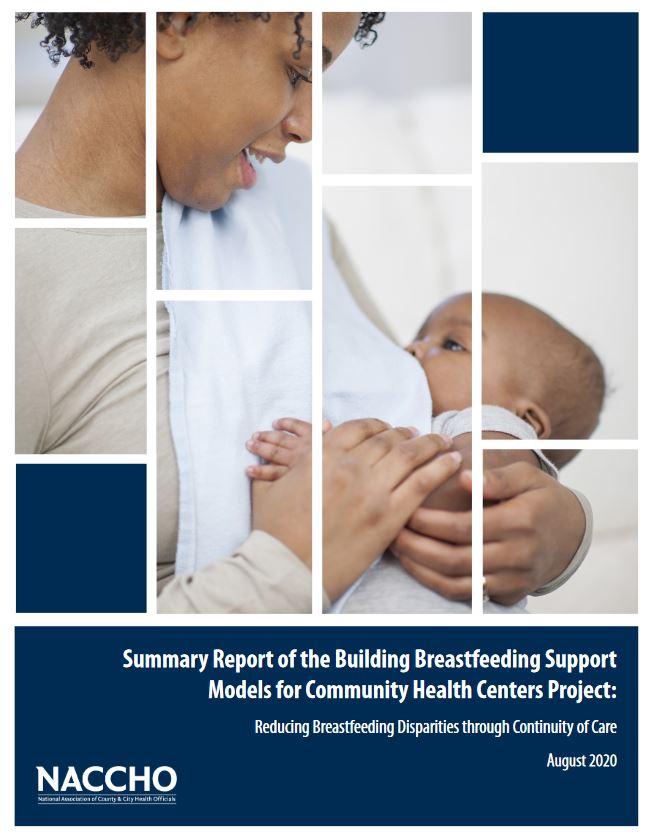 Report on Breastfeeding and Continuity of Care
|
Smile California - Getting Oral Health Care During COVID
As dental offices resume providing care, it is important we communicate to our Medi-Cal member audience that their next dental visit will be a little different. To inform members about new processes their dental office may have in place to keep everyone safe and healthy, Smile, California developed a short video and a flyer that describe changes members may experience at their next dental visit. We encourage you to share these new Smile, California resources with Medi-Cal members in your community. Download the flyer and video from SmileCalifornia.org.
|
Breastfeeding in the Workplace Module
Just in time for World Breastfeeding Month, this short module, a skills-based training on supporting breastfeeding in the workplace, addresses the important role the CA Comprehensive Perinatal Programs plays in making breastfeeding the norm in California communities through prenatal and postpartum support. The training covers the laws that protect lactation accommodation in California to help you inform and support your patients who may not have adequate support in the workplace.
|
|
|